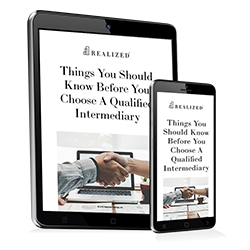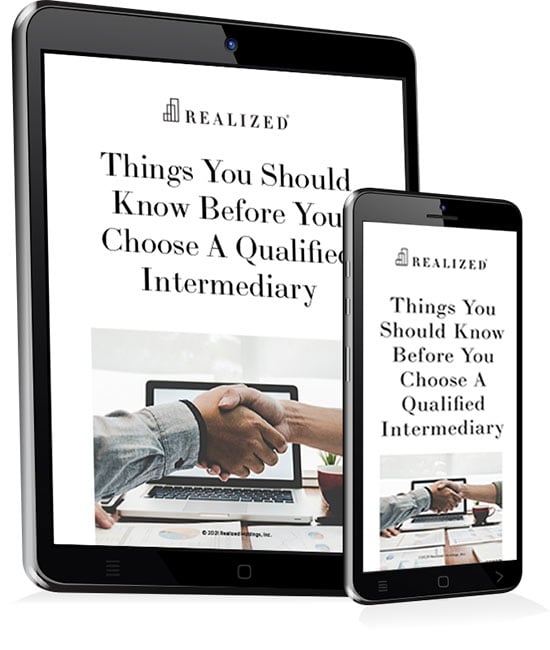
Real estate investors who complete like-kind exchanges to defer capital gains taxes on the sale of highly appreciated assets have to follow a stringent set of rules set forth by the Internal Revenue Service. Foremost among those regulations is the use of a Qualified Intermediary (QI) to facilitate all aspects of the 1031 exchange.
Qualified Intermediaries are to 1031 exchanges what quarterbacks are to football teams. They have mastered the 1031 exchange playbook and direct all the actions necessary for investors to swap one investment property for another and remain in compliance with IRS guidelines.
Since QIs play such a pivotal role in the exchange process, it’s imperative that investors select a competent qualified intermediary to lead their 1031 exchange team. Retail investors don’t necessarily need to engage a full-service exchange company with a large national footprint, but you do have to make sure your exchange facilitator doesn’t fall under the list of disqualified persons.
Let’s look at who can and can’t serve as a QI in a 1031 exchange.
1031 Exchange Disqualified Persons
In a 1031 exchange, it’s actually the Qualified Intermediary who sells the relinquished asset and purchases the replacement asset. By taking the place of the exchangor and holding funds from the sale of the relinquished asset in an escrow account, and transferring funds for the replacement asset once the purchase is complete, the Qualified Intermediary ensures that the exchangor never takes receipt of funds during the exchange process.
Due to the inherently close nature of the relationship between exchangor and QI, there are many limitations on who can act as a Qualified Intermediary. Exchangors may want to engage a trusted attorney or accountant to serve as their QI based on past history, but these professionals fall under the IRS’ list of disqualified persons.
Financial, accountancy, or legal professionals who have provided services to an exchangor within a two-year period that starts upon close of sale of the relinquished property cannot act as a Qualified Intermediary in a 1031 exchange on behalf of their clients. The list of disqualified persons also includes investment or private bankers and real estate agents if they’ve worked with the exchangor in the previous two years.
The reason why these professionals are excluded from acting as an exchange accommodator is because there’s not an independent relationship between the QI and the exchangor – they have a shared history. A QI, meanwhile, steps in and conducts all transactions at arm’s length, thus ensuring the exchange is conducted between unrelated parties.
Can You Engage An LLC Member To Serve as a Qualified Intermediary?
Certain types of business professionals are disqualified persons in 1031 exchanges because they have pre-existing relationships with the exchangor. It stands to reason, therefore, that close family relations, employees, and others within the exchangor’s personal or business circles also fall under the disqualified persons category.
That exclusion extends to any entities that are owned or controlled by the exchangor, such as LLCs or partnerships. LLC members with direct ties to the exchangor cannot serve as Qualified Intermediaries for their partner’s 1031 exchanges – any such dealings would not be considered arm’s length transactions.
Theoretically, an LLC member that had no ties to an exchangor could serve as a QI provided they had the necessary experience and received a Qualified Intermediary Employee Identification Number from the IRS. However, 1031 exchanges are complicated and require strict adherence to guidelines and deadlines. Investors may be best served by engaging the services of a QI that can demonstrate a lengthy history of completing successful exchanges.
Putting it all Together
A good quarterback can take a football team all the way to the Super Bowl. An experienced Qualified Intermediary can help you complete your 1031 exchange and successfully defer capital gains taxes when you sell an investment property and purchase a replacement asset with the sale proceeds.
Investors can find QIs through the Federation of Exchange Accommodators, or they can seek referrals from trusted sources. The key, though, is to ensure there is an arm’s length relationship between the exchangor and Qualified Intermediary. Avoid engaging an LLC member – or any other professional – who has close ties and business history with the exchangor as your QI, as this likely will result in a disqualified exchange.
This material is for general information and educational purposes only. Information is based on data gathered from what we believe are reliable sources. It is not guaranteed as to accuracy, does not purport to be complete and is not intended to be used as a primary basis for investment decisions. It should also not be construed as advice meeting the particular investment needs of any investor.
Realized does not provide tax or legal advice. This material is not a substitute for seeking the advice of a qualified professional for your individual situation.
Costs associated with a 1031 transaction may impact investor's returns and may outweigh the tax benefits. An unfavorable tax ruling may cancel deferral of capital gains and result in immediate tax liabilities.



